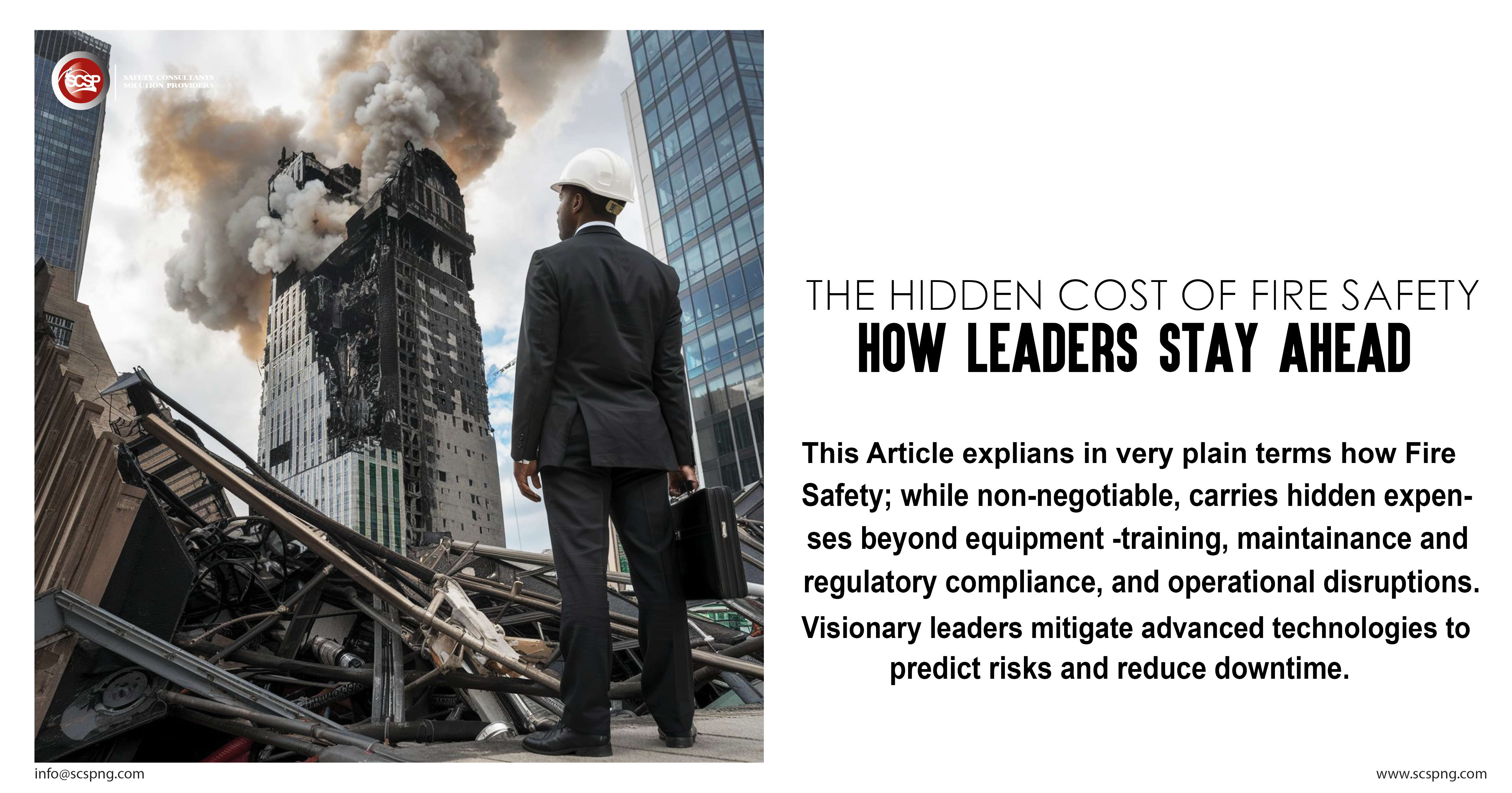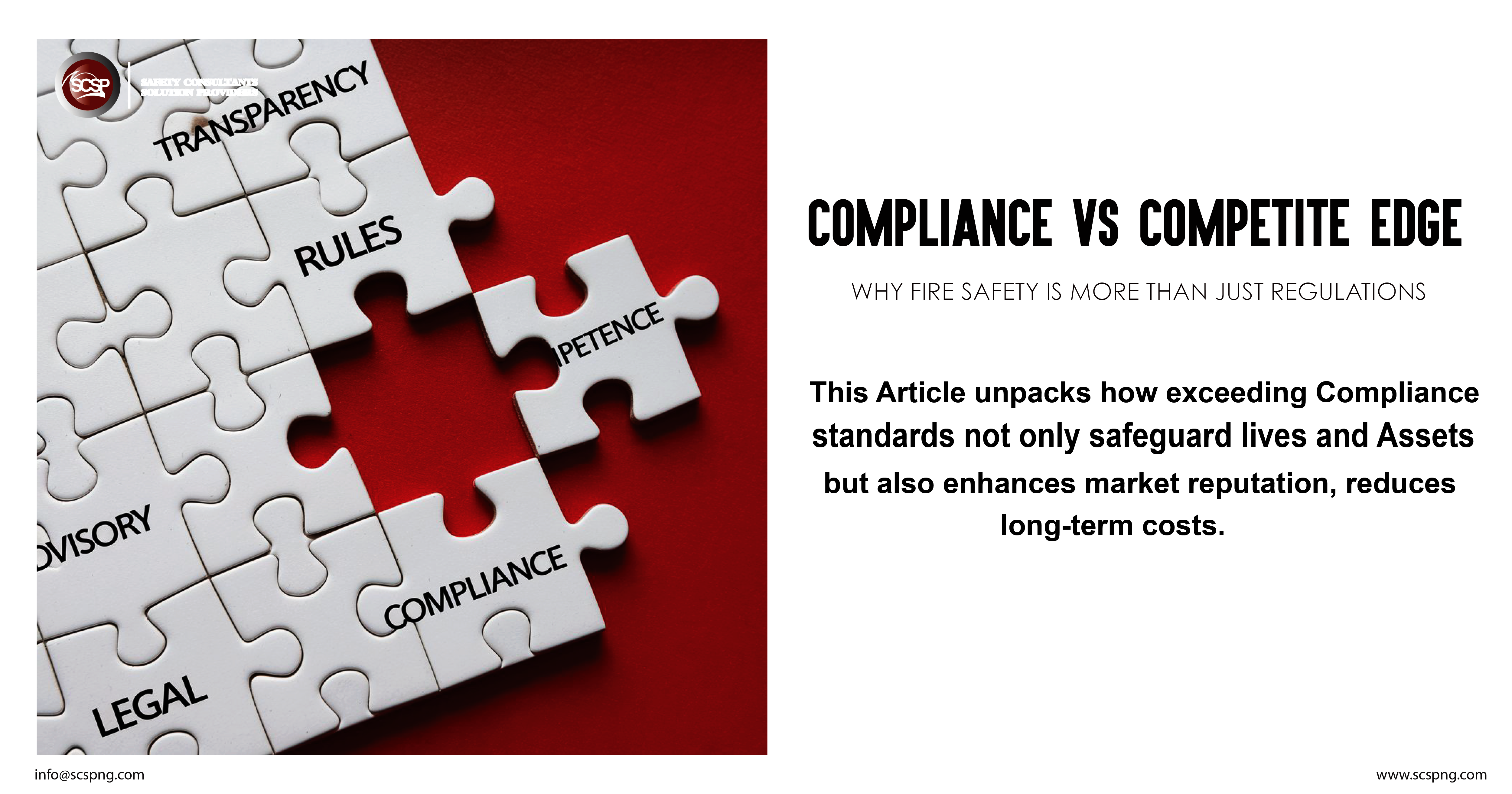In Nigeria, where rapid urbanisation, deteriorating infrastructure, and inconsistent enforcement of fire safety regulations create a heightened vulnerability to catastrophic losses, senior executives face an urgent challenge: to place fire safety at the forefront of corporate governance. Despite the existence of the National Fire Safety Code and local regulations, compliance gaps persist, driven by irregular enforcement and insufficient funding for fire services. In response, business leaders must proactively champion policies that align with international standards such as ISO 45001 and NFPA, while tailoring them to the unique local context. This means incorporating fire risk assessments into Environmental, Social, and Governance (ESG) frameworks to ensure that asset protection strategies effectively address Nigeria’s specific hazards—ranging from electrical faults in Lagos’s busy markets to fuel storage risks in Port Harcourt’s industrial zones. By embedding fire safety into executive agendas, leaders not only safeguard physical assets but also protect human capital, reinforcing their organisations social license to operate in a region where public trust is fragile.
A comprehensive fire safety strategy begins with a commitment to compliance and thorough risk assessment. The National Fire Safety Code, in conjunction with guidelines from the Federal Fire Service (FFS) and state-specific regulations, mandates strict adherence to fire prevention protocols. However, compliance should not be reduced to a simple checkbox exercise. It must be integrated into the organisation’s Enterprise Risk Management (ERM) framework, ensuring that fire protection measures align with broader business objectives, employee welfare, and asset protection. This entails regular fire risk audits, detailed emergency response planning, and close collaboration with certified fire protection experts to ensure that safety measures are not only current but also in line with industry best practices.
Effective risk mitigation requires a balanced approach, leveraging advanced technologies alongside community-focused engagement. Cutting-edge solutions such as AI-powered fire detection systems, automated sprinklers, and thermal imaging drones are crucial for early hazard detection, especially in high-risk sectors like oil and gas, manufacturing, and logistics. However, in a country like Nigeria, where power outages and budget constraints can limit the effectiveness of technology, executives must also invest in redundancy measures—such as decentralised fire hydrant networks, on-site emergency response teams, and partnerships with local fire brigades. Employee training programs that empower staff to act as first responders can bridge resource gaps, as demonstrated by Nestlé Nigeria’s fire safety workshops, which reduced incident response times by 40%. Moreover, insurers are increasingly offering reduced premiums to organisations with robust fire safety plans, providing a direct financial incentive. For instance, Dangote Group’s adoption of flame-retardant building materials and fire compartmentalisation techniques at its Lagos refinery reduced potential downtime costs by 60%, illustrating that resilience is both a moral and financial necessity.
Compliance is no longer merely a regulatory requirement but a strategic tool for gaining competitive advantage. Nigeria’s shifting regulatory environment, including tougher penalties for non-compliance under the Lagos State Fire Service Law 2023, reflects a broader trend toward greater accountability. Savvy leaders are preparing for these changes by conducting independent audits, digitising compliance records, and appointing dedicated Chief Fire Safety Officers to oversee implementation. Furthermore, proactive collaboration with agencies like the Federal Fire Service offers access to training grants and disaster response partnerships. Compliance not only helps businesses avoid fines but also bolsters stakeholder confidence. Investors increasingly prefer companies with transparent fire safety practices, and customers are more likely to support brands that demonstrate a commitment to operational integrity.
The 2022 fire at the Mandilas Building in Lagos, which resulted in $10 million in losses, serves as a stark reminder of the high cost of neglecting fire safety. By viewing fire safety as a critical leadership responsibility rather than a liability, executives can transform fire-related risks into opportunities for resilience. In doing so, they ensure their organisations are well-prepared to weather crises and emerge as leaders in sustainable governance within Africa’s largest economy.
Learn to upcoming summit: https://punchng.com/scsp-champions-investment-risk-mitigation-at-lagos-summit/#google_vignette









